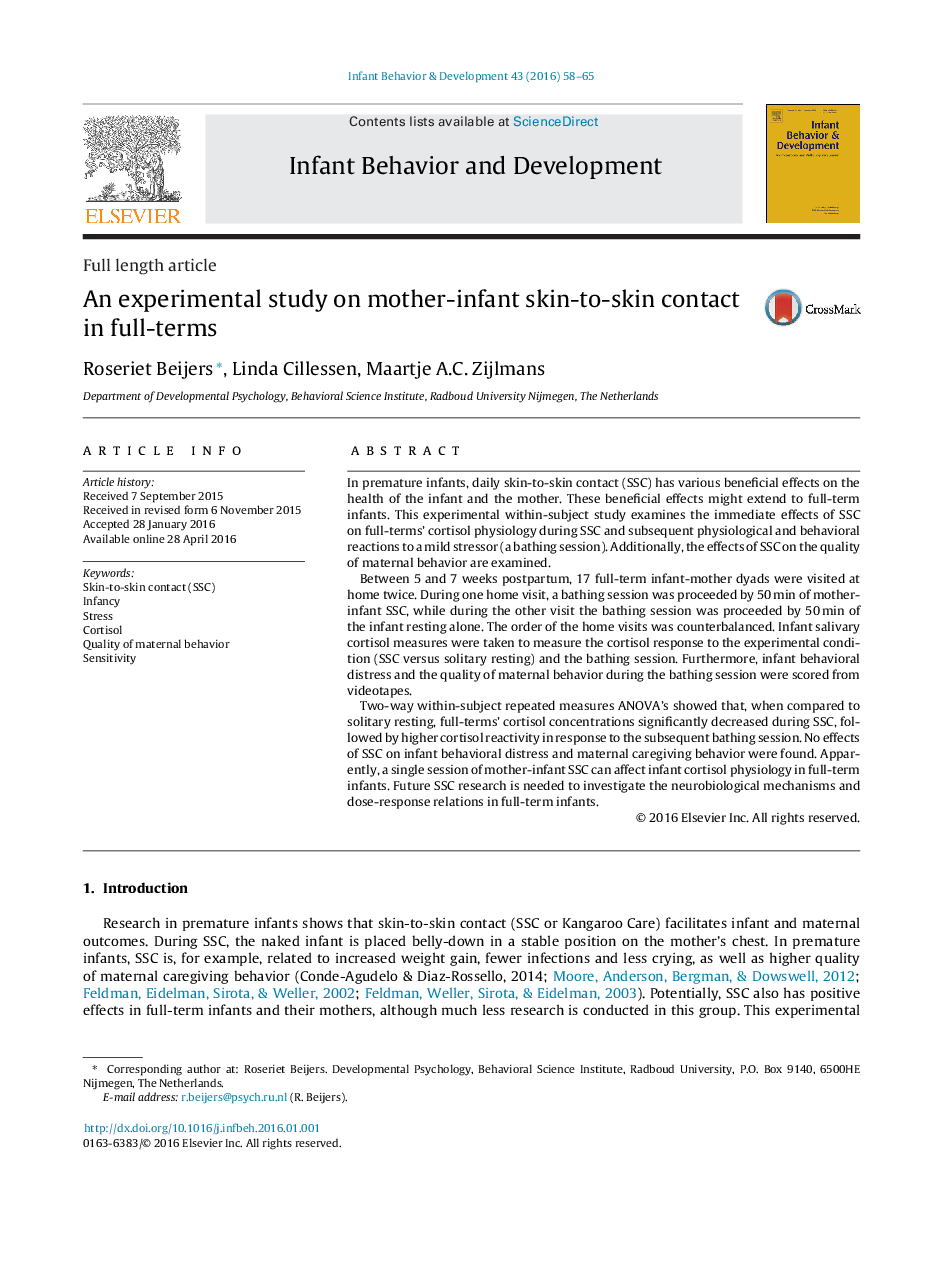| Article ID | Journal | Published Year | Pages | File Type |
|---|---|---|---|---|
| 917133 | Infant Behavior and Development | 2016 | 8 Pages |
•Skin-to-skin contact (SSC) is known for its beneficial effects in pre-terms.•This experimental within-subject examines the effects of SSC in full-terms.•Full-terms’ cortisol concentrations significantly decreased during SSC.•Subsequently, infants showed higher cortisol reactivity in response to a bath.•No effects on infant behavioral distress or maternal caregiving behavior were found.
In premature infants, daily skin-to-skin contact (SSC) has various beneficial effects on the health of the infant and the mother. These beneficial effects might extend to full-term infants. This experimental within-subject study examines the immediate effects of SSC on full-terms’ cortisol physiology during SSC and subsequent physiological and behavioral reactions to a mild stressor (a bathing session). Additionally, the effects of SSC on the quality of maternal behavior are examined.Between 5 and 7 weeks postpartum, 17 full-term infant-mother dyads were visited at home twice. During one home visit, a bathing session was proceeded by 50 min of mother-infant SSC, while during the other visit the bathing session was proceeded by 50 min of the infant resting alone. The order of the home visits was counterbalanced. Infant salivary cortisol measures were taken to measure the cortisol response to the experimental condition (SSC versus solitary resting) and the bathing session. Furthermore, infant behavioral distress and the quality of maternal behavior during the bathing session were scored from videotapes.Two-way within-subject repeated measures ANOVA’s showed that, when compared to solitary resting, full-terms’ cortisol concentrations significantly decreased during SSC, followed by higher cortisol reactivity in response to the subsequent bathing session. No effects of SSC on infant behavioral distress and maternal caregiving behavior were found. Apparently, a single session of mother-infant SSC can affect infant cortisol physiology in full-term infants. Future SSC research is needed to investigate the neurobiological mechanisms and dose-response relations in full-term infants.
